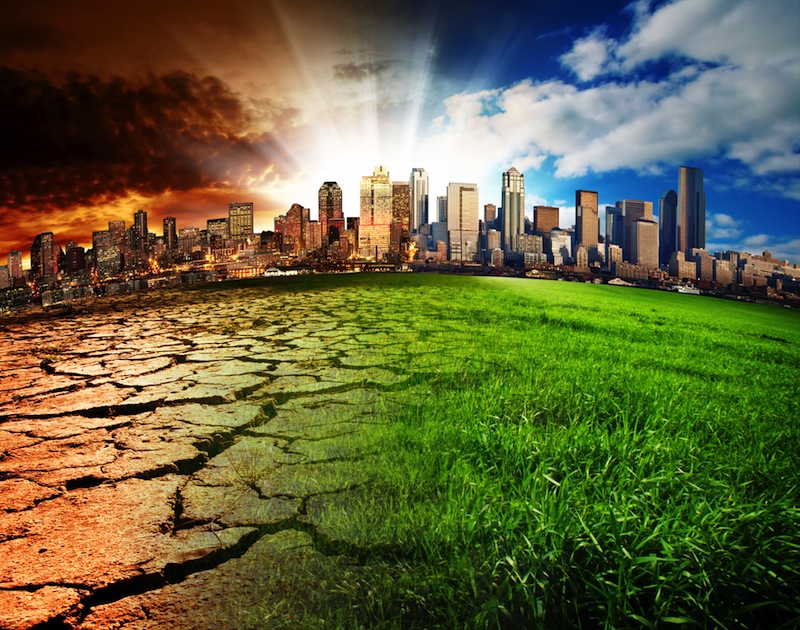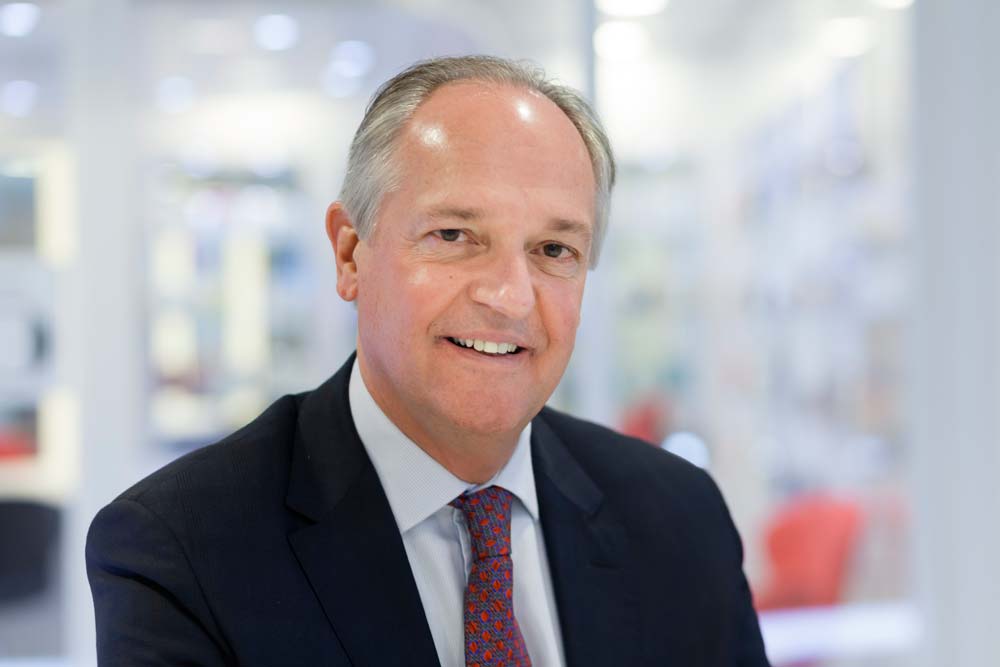Why Sustainability Is No Longer a Choice (Op-Ed)


Paul Polman has been CEO of Unilever since January 2009. Polman is chairman of the World Business Council for Sustainable Development; a member of the International Business Council of the World Economic Forum, the B Team, and the Global Commission on Business and Sustainable Development; and serves on the board of the U.N. Global Compact. In 2016, the U.N. Secretary-General asked Polman to be a member of the Sustainable Development Goals Advocacy Group, tasked with promoting action on the 2030 Agenda. Polman contributed this article to Live Science's Expert Voices: Op-Ed & Insights.
Our understanding of the global climate, economic system and world has changed dramatically over the past decade. And with it, the roles and responsibilities of businesses have also changed.
But even amid this rapid disruption, there are certainties. Businesses, in agreement with scientists and national leaders, know it's critical that we limit global warming to 2 degrees Celsius (3.6 degrees Fahrenheit) — or, better still, 1.5 C (2.7 F) — to avoid the most dangerous consequences of climate change.
We also know that we have to change our mind-set and habits in an increasingly resource-constrained world, where there is pressure on resources, ranging from water to wood.
Irreversible change
2015 gave us the frameworks and momentum we need to address these problems. The United Nations Sustainable Development Goals provide a global policy framework to eradicate poverty without putting natural resources at risk, and the Paris Agreement to combat climate change, agreed to by 195 nations, set a new direction and scale for global climate action.
But frameworks are only the starting point. It is up to everyone — governments, businesses and communities included — to take action to end extreme poverty and shift to a zero-carbon economy.
Get the world’s most fascinating discoveries delivered straight to your inbox.
As the head of a company operating in more than 190 countries and whose products are used by 2 billion people every day, I'm convinced that businesses have both a responsibility and an interest in supporting sustainability.
There is overwhelming evidence that the transition to a thriving, clean economy is inevitable, irreversible — and irresistible.
Last year, for the first time, the global economy grew without materially increasing carbon dioxide emissions. In many of the world's major economies, including China, India, France and the United States, renewable energy is now able to produce electricity for the same cost as traditional technologies. [The True Costs of Renewable Energy ]
Businesses around the world have started to change their mind-set. Whereas many used to see sustainability as an environmental or development issue, they now understand it's also a business and economic imperative.
Peter Bakker of the World Business Council for Sustainable Development recently noted that there were 13 business attendees at the first U.N. conference to address climate change in Rio de Janeiro in 1992. In Paris last year, there were more than 1,000 business representatives.
This new generation of business leaders has realized that supporting the sustainable development agenda will help them protect their long-term performance and grow their businesses.
Responsible businesses gain the advantage
Business can help speed up implementation, and unleash the investment, innovation and economic transformation required to achieve this ambitious agenda.
According to "Towards the Circular Economy" (Ellen MacArthur Foundation, 2014), if we shift to a circular economy model, it can generate more than $1 trillion each year and create 100,000 new jobs in the next five years, while reducing both waste and emissions.
Moreover, investments in energy efficiency could boost world economic output by up to $18 trillion by 2035, according to the report "Capturing the Multiple Benefits of Energy Efficiency" from the OECD/IEA, and also contribute to our goal of keeping global warming below 2 degrees C.
If we create a more equitable workforce, in which women participate in the economy identically to men, the annual global GDP would increase by an estimated $28 trillion in 2025, according to the 2015 McKinsey Global Institute report "The Power of Parity."
And we know that $90 trillion will be spent on infrastructure in the world's cities, land use and energy systems over the next 15 years according to the 2014 New Climate Economy report "Better Growth, Better Climate."
If we make all the right choices now, it won't cost more to make those investment choices low-carbon, which will have major economic and climate benefits. The financial market is already showing interest in doing so, which is a sign that the transformation is happening.
To grasp these opportunities, business leaders have realized that they need to collaborate, not just compete. So, we've seen a groundswell of partnerships and coalitions to support business action for sustainable development.
Companies in the We Mean Business coalition — with combined revenues of $6 trillion, as well as 144 investors with $20 billion in assets — have made nearly 800 commitments to climate action.
Individual companies are also making ambitious commitments — Unilever will become carbon positive in its operation by 2030, which means directly supporting the generation of more renewable energy than we consume and making the surplus available to the markets and communities in which we operate. To achieve this and other targets, businesses will need to source from renewable sources and work in partnership with their supply chains.
But there's a lot more businesses can do to grasp and promote the economic case for sustainability. That's why business and civil society leaders have formed the Global Commission on Business and Sustainable Development, launched recently at the World Economic Forum in Davos, Switzerland. We will work over the next year to articulate and quantify the compelling economic case for businesses to support the U.N. Sustainable Development Goals, mapping the ways that businesses can get involved, build competitive advantage and flourish even as the world shifts to a different trajectory.
Our message is a simple one: Business interests and the human imperatives at the heart of sustainable development both pull in the same direction. Business investments and actions are already underway, but we need to come together with governments and civil society in an unprecedented partnership if we want to achieve the scale and ambition of the change needed.
Done right, and done together, these actions will power our economies and sustain the world's people for generations to come.
Follow all of the Expert Voices issues and debates — and become part of the discussion — on Facebook, Twitter and Google+. The views expressed are those of the author and do not necessarily reflect the views of the publisher. This version of the article was originally published on Live Science.






